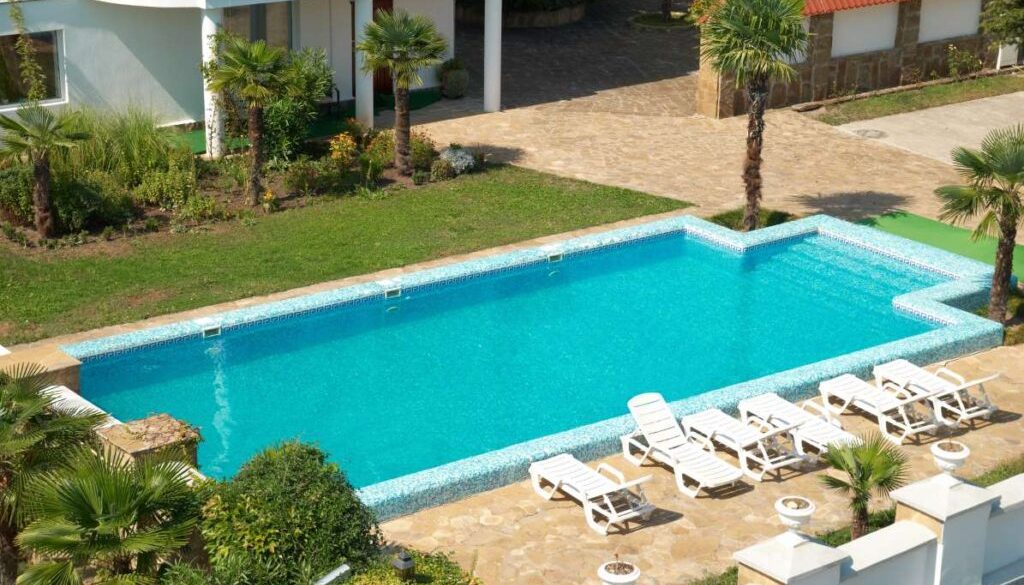Licensing and Compliance for Pool Route Buyers
Understanding the licensing and compliance landscape is crucial for anyone looking to purchase a pool route. This blog delves into essential considerations for potential buyers to ensure a smooth and compliant transaction.
Licensing and Compliance for Pool Route Buyers
When purchasing a pool route, navigating the complexities of licensing and compliance is paramount to ensure operational success and legal adherence. This blog post provides a detailed overview of the necessary licenses, the compliance processes involved, and practical tips for potential buyers to streamline their purchasing process. We will explore various aspects including local regulations, the importance of proper documentation, and how to ensure that you are making a sound investment in the pool service industry.
Understanding Licensing Requirements
Before initiating the purchase of a pool route, it is essential to familiarize yourself with the licensing requirements in your state or locality. Licensing requirements can vary significantly depending on your geographic location. Common licenses that pool route buyers may need to acquire include:
- Business License: This is often a fundamental requirement for any business operation. It confirms that your business is legally recognized and authorized to operate in your locality.
- Pesticide Applicator License: If your pool route involves the application of chemicals, obtaining a pesticide applicator’s license is crucial. This license ensures that you comply with safety standards and regulations related to chemical use.
- Contractor License: In some regions, a contractor license may be necessary, especially if your services extend beyond basic pool cleaning to include repairs or renovations.
Failure to obtain the appropriate licenses can lead to significant penalties and could jeopardize your investment. For instance, the Environmental Protection Agency (EPA) enforces strict regulations on chemical use, and non-compliance can result in hefty fines. Therefore, it is essential to conduct thorough research or consult with a business advisor to understand the specific licensing requirements applicable to your intended service area.
Compliance With Local Regulations
In addition to obtaining the necessary licenses, compliance with local regulations is another vital aspect of owning a pool route. Regulations can cover a wide range of areas including:
- Health and Safety: Pool service businesses must adhere to stringent health and safety regulations to ensure the well-being of clients and employees. This includes proper handling and storage of chemicals, as well as ensuring that pool environments minimize the risk of accidents.
- Environmental Regulations: Compliance with environmental laws is essential, especially regarding chemical runoff and waste disposal. Many localities have specific guidelines governing how pool service businesses must manage their waste and chemical use to protect water quality.
- Employment Laws: If you plan to hire staff, understanding employment laws is crucial. This includes regulations on wages, work hours, and workplace safety.
For those looking to buy a pool route, it is advisable to request documentation that verifies the seller’s compliance with local regulations. This due diligence will help prevent potential legal issues down the line and ensure a more seamless transition into ownership.
The Importance of Proper Documentation
Proper documentation plays a critical role in ensuring compliance and protecting your investment. When purchasing a pool route, pay attention to the following documentation:
- License Documentation: Ensure that all licenses held by the seller are current and valid. This should include the business license, pesticide applicator license, and any additional permits.
- Insurance Certificates: Verify that the pool service has appropriate insurance coverage, including general liability insurance and workers’ compensation if applicable. This protects you from potential liabilities.
- Client Contracts: Review existing contracts with clients to ensure that they are transferable and compliant with local laws. Understanding the terms and conditions of these contracts can also provide insights into the financial viability of the pool route.
Organizing these documents will not only assist in facilitating a smooth transaction but also provide peace of mind regarding the legitimacy of the business you are purchasing. Take the time to thoroughly review all documentation and consult with a legal professional if necessary.
Best Practices for Pool Route Buyers
As a prospective buyer, adhering to best practices can greatly enhance your chances of a successful purchase. Here are some actionable tips:
- Conduct Thorough Research: Investigate the pool service industry in your area. Understand local market dynamics, pricing strategies, and competition. This knowledge will aid in negotiating the purchase price and ensuring that the business is a viable investment.
- Engage Experts: Consider hiring a business broker or consultant with experience in the pool service industry. They can provide valuable insights, help navigate compliance requirements, and offer negotiation strategies.
- Perform Due Diligence: This involves examining all aspects of the business that may affect your purchasing decision. Evaluate financial statements, customer retention rates, and operational procedures to gauge the business’s health.
- Network with Industry Professionals: Building relationships with other pool service professionals can provide insights into best practices and trends in the industry. They can also offer advice on managing compliance and licensing requirements.
Taking these steps can significantly enhance your understanding of the pool service business and ensure that you are well-prepared for ownership.
The Role of Technology in Compliance Management
In today’s digital age, technology can play a pivotal role in managing licensing and compliance effectively. Various software solutions are available to assist pool service businesses with:
- Document Management: Digital platforms can help store and organize licensing documents and compliance records, making it easier to track renewals and ensure that all licenses are current.
- Scheduling and Workflow Automation: Software that automates scheduling can help ensure that services are provided consistently and in accordance with local regulations.
- Training and Certification Management: Many software solutions also offer training modules for employees, ensuring that they are updated on compliance regulations and safety protocols.
Leveraging technology can streamline operations, reduce the risk of non-compliance, and enhance overall efficiency. As you consider purchasing a pool route, think about how technology can assist in maintaining compliance and improving service delivery.
Conclusion
In summary, navigating the landscape of licensing and compliance when purchasing a pool route is essential for ensuring a successful business operation. By understanding the necessary licensing requirements, adhering to local regulations, and maintaining proper documentation, prospective buyers can make informed decisions that protect their investments. Additionally, leveraging best practices and technology can enhance the operational efficiency of a pool service business and mitigate compliance risks. As you embark on your journey to buy a pool route, remember that thorough research, expert guidance, and a proactive approach to compliance will set you on the path to success. Contact us today to explore our listings and start your journey in the pool service industry!



